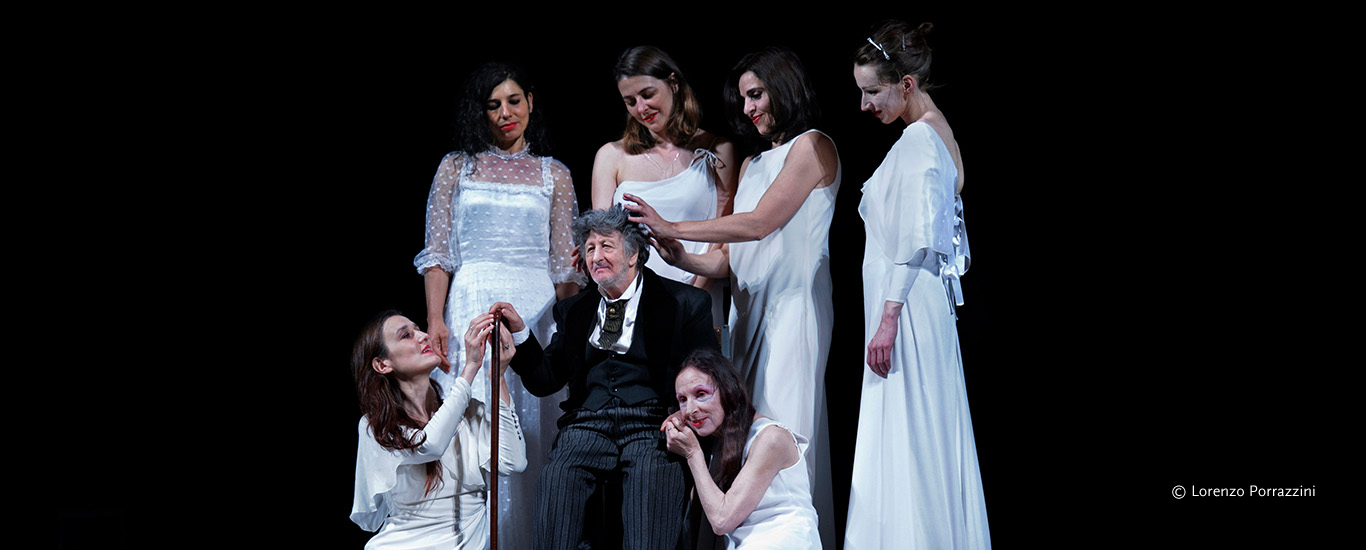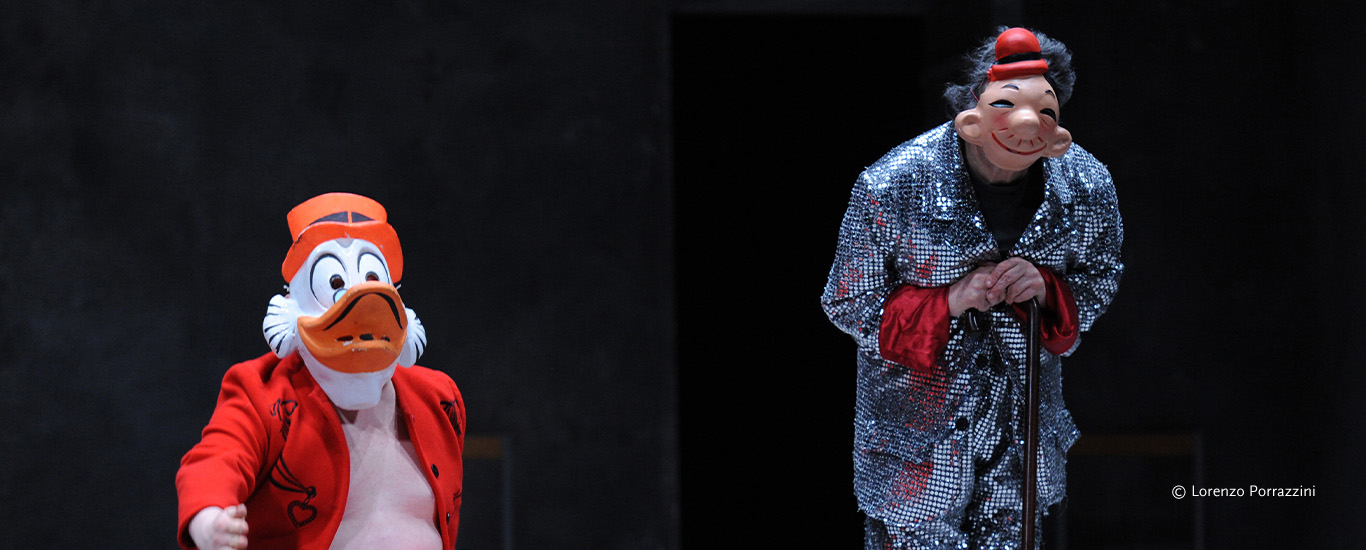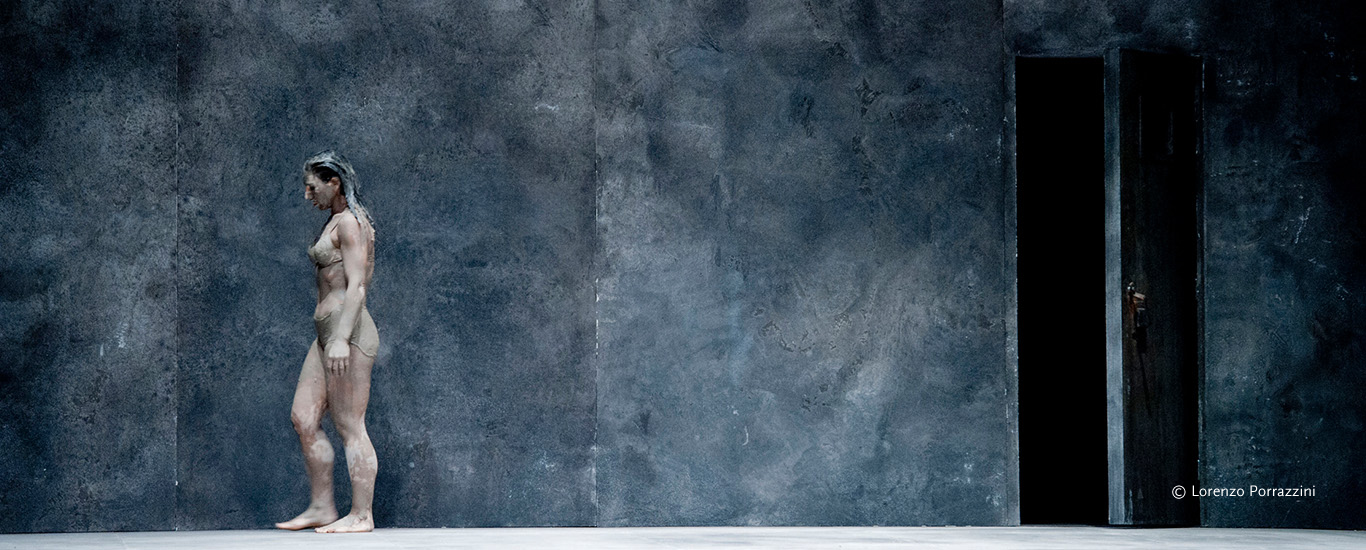DATE AND VENUE
{{item.tarih}}, {{item.mekan}}
You may follow the screening of the performance with tickets via online.iksv.org from 14 November (20.00) to 14 December.
Lasts app. 110’; no intermission.
Italian with Turkish & English subtitles.
+13
Produced by: Emilia Romagna Teatro Fondazione
Co-produced by: Teatro di Roma, Théâtre du Rond Point- Paris, Théâtre de la Place – Liège, Théâtre National de Bretagne - Rennes
PIPPO DELBONO COMPANY
- Conceived & Directed by: Pippo Delbono
- Original Music: Alexander Balanescu
- Stage Design: Claude Santerre
- Costumes Design: Antonella Cannarozzi
- Lights Design: Robert John Resteghini
- Technical Director: Fabio Sajiz
- Sound Responsible: Angelo Colonna
- Sound Design: Corrado Mazzone
- Light & Video: Orlando Bolognesi
- Wardrobe: Elena Giampaoli
- Chief Machinist: Gianluca Bolla
- Machinist & Video: Mattia Manna
- Production Manager: Alessandra Vinanti
- Organisation: Silvia Cassanelli
- Performers: Dolly Albertin, Gianluca Ballaré, Bobò, Pippo Delbono, Ilaria Distante, Simone Goggiano, Mario Intruglio, Nelson Lariccia, Marigia Maggipinto, Julia Morawietz, Gianni Parenti, Pepe Robledo, Grazia Spinella with the participation of Alexander Balanescu
Thanks to Teatro Pubblico Pugliese et Cinémathèque Suisse
Watching Pippo Delbono’s latest work, we find ourselves at the beginning of a visionary journey, at the threshold of a sequence of frames, in the body of a dramaturgy that shows us, without holding back, the truth that folly uncovers. Dopo La Battaglia (After The Battle) is a composition that opens wide the doors of our existential darkness, in a continuous flow that pierces through the void it has unveiled. Through the rhythm of the music and the dance, finding in the words and poetical verses the harmony between language and emotion, we witness present pain transfigured into faith in the future. Delbono stands by his companions, urging them onto the neutral scenery, a physical and mental grey zone, a crossroads of our imaginative world, where we see figures of our real world flowing through, where the misery and vices of a captive, blind people take form and come to life with motions that become mechanical, automatic. The words of authors such as Antonin Artaud, Franz Kafka, Alda Merini, Pier Paolo Pasolini, Walt Whitman, Rainer Maria Rilke, Alejandra Pizarnik, re-written by Pippo Delbono, resonate in a ritual that is, at once, sacred and secular. Original music composed and performed live by Alexander Balanescu. An expanding theatrical language, traced by bodies and texts, by different forms of saying and representing, by pitches and tones turned into action by the music and dance, by performers who turn words into flesh, in a theatre that becomes flesh of its own time, and of the times we live in.










